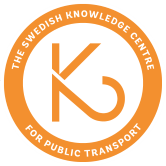An agent-based simulation model for supporting the decision making in urban transport planning is presented. The model can be used to investigate how different transport infrastructure investments and policy instruments will affect the travel choices of passengers. We identified four main categories of factors influencing the choice of travel: cost, time, convenience, and social norm. However, travelers value these factors differently depending on their individual characteristics, such as age, income, work flexibility and environmental engagement, as well as on external factors, such as the weather. Moreover, instead of modeling the transport system explicitly, online web services are used to generate travel options. The model can support transport planners by providing estimations of modal share, as well as economical and environmental consequences. As a first step towards validation of the model, we have conducted a simple case study of three scenarios where we analyze the effects of changes to the public transport fares on commuters’ travel choices in the Malmö-Lund region in Sweden.
